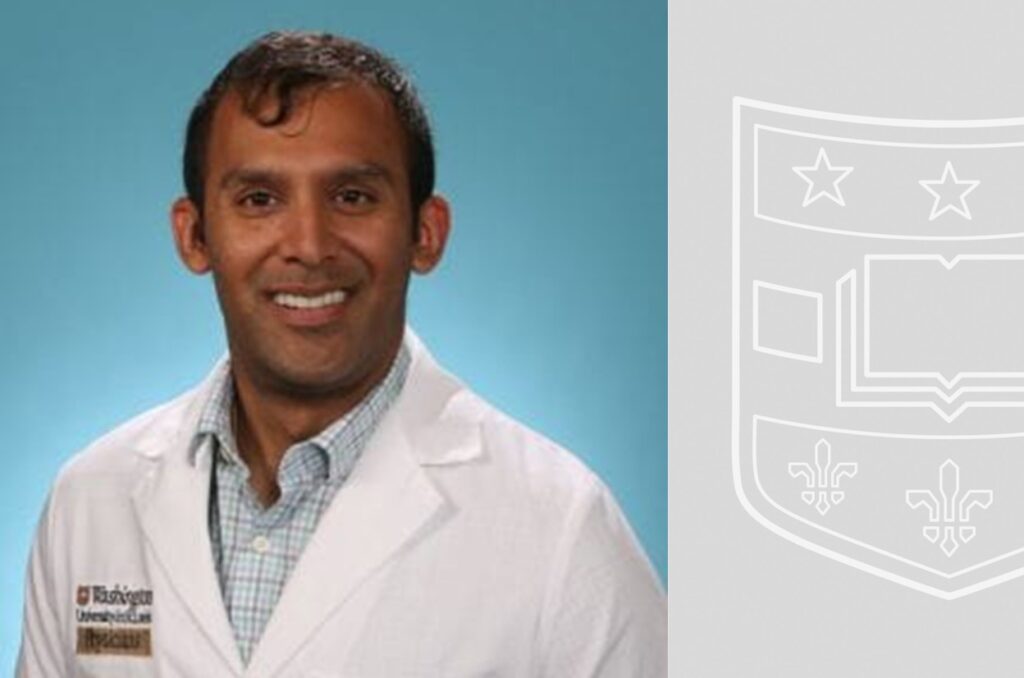Dr. Patel’s clinical, research, and teaching interests include investigating the pathogenesis of malignant and non-malignant hematologic disorders. His studies are focused on better understanding mechanisms of disease as well as ways to prevent poor outcomes following hematopoietic cell transplant. While at Vanderbilt University, he worked with his co-mentor, Dr. Brian Engelhardt, on understanding the mechanisms and implications of post-transplant diabetes mellitus (PTDM) in recipients of allogeneic hematopoietic cell transplantation. Given his particular interest in haploidentical transplants, he worked with a pharmacy resident to develop a retrospective database review on the development of PTDM in this patient population. This work was published in eJHaem (PMID 33709085). Along with his primary mentor, Adetola Kassim, he studied a similar phenomenon in sickle cell patients undergoing haploidentical transplantation. These results were presented at the virtual American Society of Hematology (ASH) Annual Meeting in 2020 and are currently being written up for publication. The group remains interested in prospectively assessing T-cell subsets in sickle cell patients who are undergoing haploidentical transplant to predict the onset of PTDM.
Dr. Patel’s other work includes publishing three abstracts prior to the end of fellowship in June 2020, namely the “Transfusion Support in Patients with Sickle Cell Anemia Undergoing Haploidentical Hematopoietic Cell Transplantation” presented at ASH 2019, “Augmenting non-myeloablative BMT with PTCy using Thiotepa or 400 cGy TBI improves engraftment in patients with transfusion dependent thalassemia: Results of a Haploidentical Transplant Consortium for Hemoglobinopathies (ICHH)” presented at ASTCT in 2019, and “Non-myeloablative bone marrow transplant with post-transplant cyclophosphamide plus thiotepa improves donor engraftment in patients with transfusion dependent thalassemia: Results of an international consortium (VGC2)” presented at ASTCT in 2020. The latter two are part of the same international collaborative consortium headed in part by Dr. Adetola Kassim. Before completing fellowship, Dr. Patel also submitted a manuscript titled “Similar Outcomes in Early Failure Steroid-Dependent Compared to Upfront Steroid Refractory Acute Graft-Versus-Host Disease Following Allogeneic Hematopoietic Cell Transplant” that was accepted to the Journal of Hematology.
Since leaving Vanderbilt University Medical Center in June 2020, he started a position as an advanced bone marrow transplant fellow in the Department of Medicine, Division of Oncology, at Washington University in St Louis School of Medicine. His primary mentors are Dr. John F. DiPersio and Dr. Michael Rettig. He completed one year of clinical training in BMT, from 7/2020 to 6/2021, and has since started in the DiPersio lab, where his work is centered on understanding the immunopathology of cytokine release syndrome in the setting of bispecific dual affinity T-cell retargeting agents, such as flotetuzumab, for acute leukemia. While preparing for his laboratory year, he wrote a book chapter titled Mouse Models of Graft Versus Host Disease that has been accepted for publication in Methods of Cell Biology.
